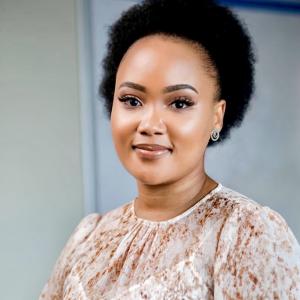Gender-Based Violence (GBV) is a pernicious issue in Southern Africa where prevalence is particularly high compared to the rest of the world - between half and two-thirds of all women state that they have experienced violence at some point in their lives compared to one third internationally. GBV is a complex and multifaceted issue that has a variety of root causes, including patriarchal social norms and cultural beliefs that reinforce traditional gender roles and place men in positions of power and often perpetuate the idea that men have a right to control women and their bodies, economic inequality, poverty, unemployment, lack of access to education and resources, lack of legal protections and enforcement contributing to the impunity of GBV perpetrators, gender-based discrimination, but also substance abuse and mental health issues. These factors often interact with one another in complex ways, are highly intertwined and can vary depending on the context and culture.
Addressing GBV requires a comprehensive approach that addresses all these underlying factors concomitantly, promotes gender equality, changes harmful social norms, protects women’s rights, strengthens women’s economic empowerment and ensures access to adequate services and resources for survivors.
In the heart of Southern Africa, an alarming rise in gender-based violence (GBV), especially against women and girls, has sounded a clarion call. GBV is tearing apart the lives of women and girls, hindering development, and stifling progress. In the mountainous landscapes of Lesotho, over 86% of Basotho women and girls have experienced GBV at one point or another in their lives.
Lesotho, under the leadership of its UN Resident Coordinator, Ms Amanda Khozi Mukwashi, decided it was time to take bold steps. The RCO Lesotho knew that this vision could not be achieved in isolation. It required a collective effort, a united front to combat GBV comprehensively. They reached out to UN Resident Coordinators in Botswana, Eswatini, Namibia, South Africa, and Zambia, igniting a spark of collaboration for a transformative change.
Recognizing this urgency, the United Nations, in collaboration with the Spotlight Initiative, has initiated a ground-breaking five-year program to combat GBV across six Southern African countries: Botswana, Eswatini, Lesotho, Namibia, South Africa, and Zambia. The RCO Lesotho has played the role of a catalyst, bridging gaps, facilitating dialogue, and ensuring that the collective efforts remained on course. They meticulously coordinated the development of a Sub-Regional Joint Programme on GBV, a groundbreaking initiative aimed at tackling GBV from all angles—prevention, response, and support.
A High-level Partnership round-table was held with the participation of representatives from the six countries. The attendees included high-level officials from government, development partners, AU, SADC, private sector, civil society, and the UN. The Honorable Minister Dr. Nkosazana Dlamini Zuma – Minister in the Presidency for Women, Youth and Persons with Disabilities graced the event and the Her Majesty Queen Masenate Mohato Seeiso of the Kingdom of Lesotho joining online. Amanda Khozi Mukwashi, the UN Resident Coordinator for Lesotho, provided insights into the Lesotho-specific challenges and expectations. She touchingly remarked on the importance of peace as a precursor to a GBV-free society. For many women, peace remains an elusive concept, restricted not just to public spaces but their private sanctuaries.
Additionally, Her Majesty the Queen of Lesotho, who virtually participated in the roundtable, lent her influential voice and support to the initiative, indicating the nation's commitment at the highest level.
As part of the Southern African Development Community (SADC) region, which unfortunately records some of Africa's highest rape cases, the challenge for Lesotho is twofold. Firstly, to address the immediate issue of GBV within its boundaries and secondly, to participate in a sub-regional approach ensuring that as a collective, the Southern African nations rise above this challenge.
Collective Action and Collaboration
The discussions, punctuated by contributions from various national representatives, emphasized the importance of a collaborative approach. As noted by UN Botswana Resident Coordinator, Zia Choudhury, ending GBV requires a collective effort, bringing together governments, NGOs, academia, private sector, and, importantly, survivors.
Minister in the Presidency for South Africa responsible for Women, Youth and Persons with Disabilities Dr. Nkosazana Dlamini-Zuma's message was clear - to end GBV, we need to empower women economically and educationally, reducing their dependency on men.
The message was unmistakable; all the partners unanimously concurred that addressing gender-based violence (GBV) is imperative. What remains is the provision of the necessary resources, both in terms of technical expertise and financial support.
Way Forward for Lesotho
In line with the global Sustainable Development Goals, especially SDG 5 focusing on gender equality, Lesotho needs to strategize and implement policies that address the root causes of GBV. The nation has to invest in awareness campaigns, legislative changes, and most importantly, foster an environment where survivors feel safe to come forward.
Substance abuse, often interlinked with GBV, requires attention, as pointed out by Dr. Dlamini Zuma in her closing remarks. Establishing rapid response teams at local levels, equipped to deal with reported GBV cases promptly, can be a game-changer for Lesotho. Furthermore, by amplifying the voices of women in the fight against GBV, Lesotho can create a robust and resilient narrative of strength, hope, and change.
As Lesotho stands at the precipice of change, initiatives like these serve as a beacon of hope for the countless women and girls affected by GBV. Through collective regional efforts, backed by global partners, Lesotho has the opportunity to transform itself into a nation where every individual, regardless of gender, can live with dignity, free from fear. The journey might be arduous, but the resolve, as was showcased at the roundtable meeting, is unwavering. The hope is that in the not-too-distant future, every woman and girl in Lesotho and its neighboring countries can truly know what peace feels like.
There can be no achievement of development without peace. Peace is not just a goal; it is a prerequisite for achieving development goals, and violence remains an obstacle to these objectives.








